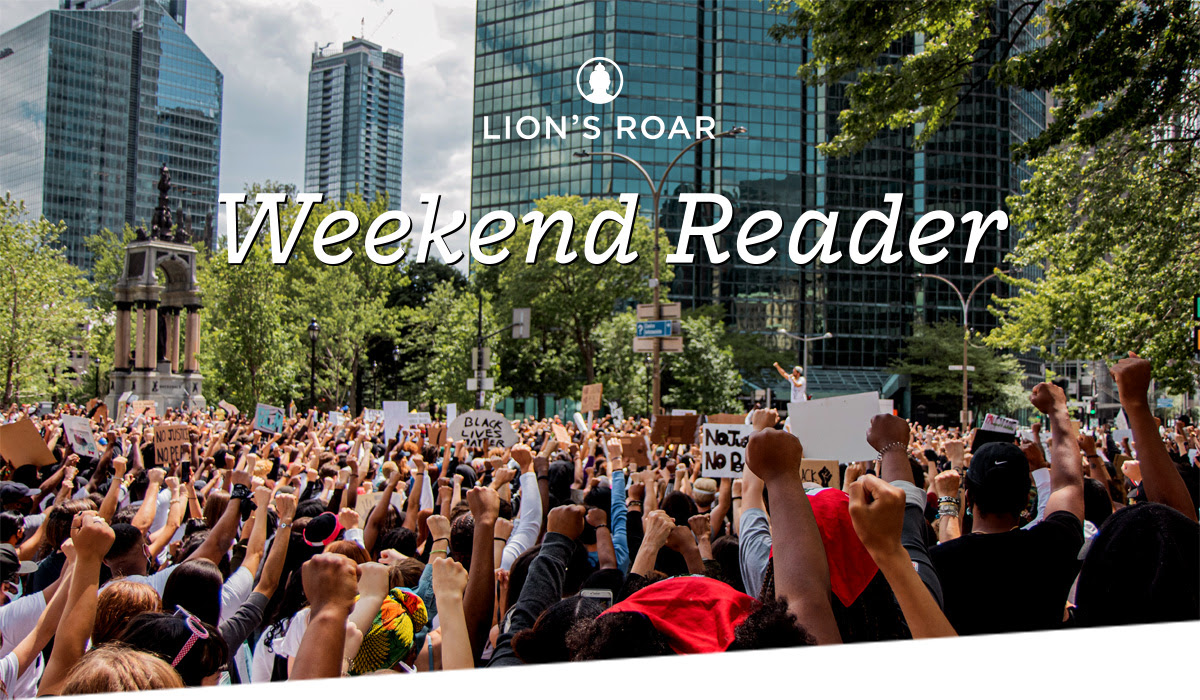 |  |  | | 06.26.2020 |  |
| | DON’T DO NOTHING | Last fall while driving my son to school, I took a shortcut I’d never tried before and was immediately pulled over by a police officer for making an illegal left hand turn between the hours of 7 and 9 a.m. What struck me as I was pulled over was not what I felt but what I didn’t feel: fear. As a white middle-class woman, it never occurred to me to rehearse how to handle a situation with a cop. I didn’t worry about keeping my hands visible at all times, nor did I worry about my teenage son sitting next to me doing so either.
In her book, So You Want to Talk About Race, author Ijeoma OIuo talks about the fear she’s experienced when “being pulled over for driving while Black.” Not only is she careful not to make a move without the officer’s permission, she sends out a quick Tweet to let her friends know she’s been pulled over in case she doesn’t make it out alive.
Four years ago, Buddhadharma published an issue focused on racism and white privilege, which exist not only in society at large but in our Buddhist communities as well. The issue was conceived in the wake of an alarming number of police killings of mostly young Black men. In her article, “Where Will You Stand?” Rev. angel Kyodo williams talked about it as “the ‘back of the bus’ moment of our time.” She went on to say, “If you have ever wondered how you would have shown up in the face of the challenge put before white America when Rosa Parks refused to give up her seat, upending the accepted social order, now is the time you will find out.”
Her words resonate even more loudly today following the police killing of George Floyd.
So how can white people — white practitioners — show up? That’s the question many are asking these days. The most helpful answer I’ve heard was from a young Black man speaking recently at an anti-racism rally. He asked anyone in the crowd who had never experienced racism to put up their hands. As we held our hands up, he asked us to look around at one another and told us we were the ones who needed to do something about racism. And if we didn’t know what to do, he implored us, “Don’t do nothing.”
Eradicating racism isn’t the responsibility of those who experience it, but rather is the responsibility of those who don’t. It starts by understanding that we are part of the problem.
In “Facing My White Privilege,” Tara Brach shares how she thought she was pretty conscious about racism and white privilege until it was pointed out to her that there were some big gaps in her awareness. In “Waking Up to Whiteness,” Greg Snyder discusses the need to deeply examine our relationship to white identity. “As we do so,” says Snyder, “we come to see how we are involved in creating bodies and minds that are racialized, separate, and oppressed, and we see how we are invested in that separation.”
But self-knowledge isn’t enough to overthrow institutional racism and the violence it begets. We must also act. As Snyder explains, “When it comes to white supremacy and the harm it continues to cause all of us, we white Buddhists must give up the privilege of sitting this one out.”
In other words, “Don’t do nothing.”
—Tynette Deveaux, editor, Buddhadharma |
|
|
|
No comments:
Post a Comment